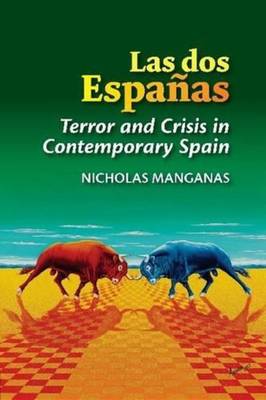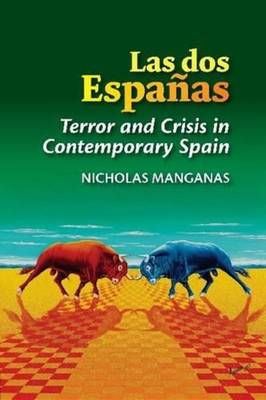
- Afhalen na 1 uur in een winkel met voorraad
- Gratis thuislevering in België vanaf € 30
- Ruim aanbod met 7 miljoen producten
- Afhalen na 1 uur in een winkel met voorraad
- Gratis thuislevering in België vanaf € 30
- Ruim aanbod met 7 miljoen producten
Zoeken
Omschrijving
The idea of a divided Spain, where one half is antagonistic to the other half, dates back at least to the 19th-century Spanish satirist Mariano José de Larra who, in his essay 'All Souls Day 1836', wrote 'Here lies half of Spain. It died of the other half.' The narrative of las dos Españas is evident across many political and historical debates operating in the Spanish state, and contemporarily it shadows and informs national issues from Catalan independence to the teaching of history in schools. But it is most polemical in debates concerning the issue of terror in all its manifestations. Las dos Españas takes a multidisciplinary approach in understanding narratives of terror in contemporary Spain, in an attempt to contextualise terrorism socially and politically, as well as ideologically. Selective case studies of terror related events in the Spanish state will include the long-running Basque conflict, the state-sponsored death squad (GAL) scandal in the 1980s, the March 2004 terrorist attacks in Madrid, and other terror episodes. The author argues that these terror-related events can be re-read in terms of traces and links to long-standing historical narratives. However, since the onset of the global economic crisis in 2009, and its devastating effect on Spanish society, narratives of economic crisis have begun to supersede narratives of terror in the construction of the two Spains. The conclusion drawn is that the narrative of las dos Españas still has the power to continue to divide Spain ideologically in political discourse. Terror and crisis narratives are intertwined with the narrative of las dos Españas to provide a coherent argument that allows one to better understand the subversive nature of contemporary Spanish politics. Published in association with the Canada Blanch Centre for Contemporary Spanish Studies, LSE.
Specificaties
Betrokkenen
- Auteur(s):
- Uitgeverij:
Inhoud
- Aantal bladzijden:
- 272
- Taal:
- Engels
- Reeks:
Eigenschappen
- Productcode (EAN):
- 9781845198497
- Verschijningsdatum:
- 16/08/2016
- Uitvoering:
- Paperback
- Formaat:
- Trade paperback (VS)
- Afmetingen:
- 152 mm x 226 mm
- Gewicht:
- 385 g

Alleen bij Standaard Boekhandel
+ 169 punten op je klantenkaart van Standaard Boekhandel
Beoordelingen
We publiceren alleen reviews die voldoen aan de voorwaarden voor reviews. Bekijk onze voorwaarden voor reviews.







